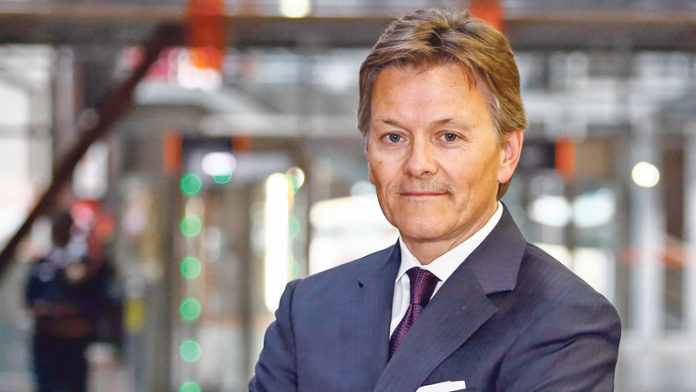
ANGLOGOLD Ashanti was confident it would get release of some $202m in cash waiting for repatriation from the Democratic Republic of Congo (DRC).
“Barrick has been having constructive discussions and we expect to get that released very soon,” said AngloGold CEO, Kelvin Dushnisky.
The cash due to AngloGold by dint of its 45% in Kibali, the DRC gold mine it shares with state-owned gold company, SOKIMO, and Barrick Gold which controls the other 45% in the mine and is its operator. Kibali had a stand out year in 2019 beating guidance of 750,000 ounces in its 2019 financial year by delivering a record 814,027 oz.
Barrick is also in a discussion with SOKIMO regarding plans to sell its 10% stake in Kibali to AJN Resources, a Canadian listed company that has Congo gold industry veteran Klaus Eckhof as president and CEO. Barrick said in a statement last night it had not received notice from SOKIMO of its intention to sell, but would deny the request anyway.
The cash from the DRC would have made a good year better for AngloGold in 2019 in which it announced a 57% lift in the 2019 total dividend (74% in rand terms) of 11 US cents per share. This was on the back of a higher dollar gold price which surged 21% in the second half of the year and was on average 10% higher year-on-year at $1,387/oz.
This offset a 4% decline in AngloGold’s annual production which fell to 3.28 million oz at an all-in sustaining cost (AISC) of $992/oz. Production of 3.05 to 3.3 million oz at an AISC of $1,040 and $1,100/oz has been forecast for the current financial year.
All in all, Dushnisky completed his first full year in charge of AngloGold Ashanti in high riding-fashion. In addition to overseeing the firm’s best ever safety numbers, Dushnisky also ticked a number of strategic boxes that included re-opening Ghana’s Obuasi mine, and the sale of non-core assets.
“We’re working hard to deliver on our strategy and to capture the wider margin in this strong gold price environment,” said Dushnisky in notes to the firm’s 2019 results announcement. It reported a 72% increase in full year headline earnings of $379m whilst free cash flow from operations more than doubled to $127m year-on-year.
During the year, Dushnisky signed an agreement to sell the remainder of the firm’s South African assets – Mponeng and Mine Waste Solutions – to Harmony Gold for $300m, as well as the Sadiola mine in Mali. However, the firm may not dispose of Cerro Vanguardia (CVSA) in Argentina, as previously planned. “We expect to receive a firm price offer for CVSA, but it’s a good asset. We are more than happy to keep it at the current gold price as it generates good cash flow,” said Dushnisky.
South African gold production will be replaced with gold from the re-engineered Obuasi which is on course for a run-rate of 350,000 to 400,000 oz/year at an AISC of $800/oz following its first gold pour in December. AngloGold had suspended the mine in 2014.
AngloGold also exerted greater control over its balance sheet. Adjusted net debt to adjusted earnings before interest, tax, depreciation and amortisation (EBITDA) fell below the 1x target as of December 31. Adjusted net debt was $1.58bn compared to $1,66bn per the December 31, 2018 year-end.
Asked at a media conference if AngloGold might pursue a more aggressive approach to returns in the current financial year assuming the dollar gold price continued to flourish, Dushnisky said the approach was rather to invest in the assets.
“Nothing changes. We would like to have a steadily increasing dividend (AngloGold pays out 10% of free cash flow before growth capital) and we would like to strengthen the balance sheet,” said Dushnisky. “We will continue to chip away at that but we will use the proceeds to reinvest in the business which is a way of returning value.”
Investment in sustaining capital will be between $640m to $670m this year which compares to $494m last year which AngloGold said would give it operational flexibility. At spot, the gold price is 17.5% higher than the 2019 average received by AngloGold.











